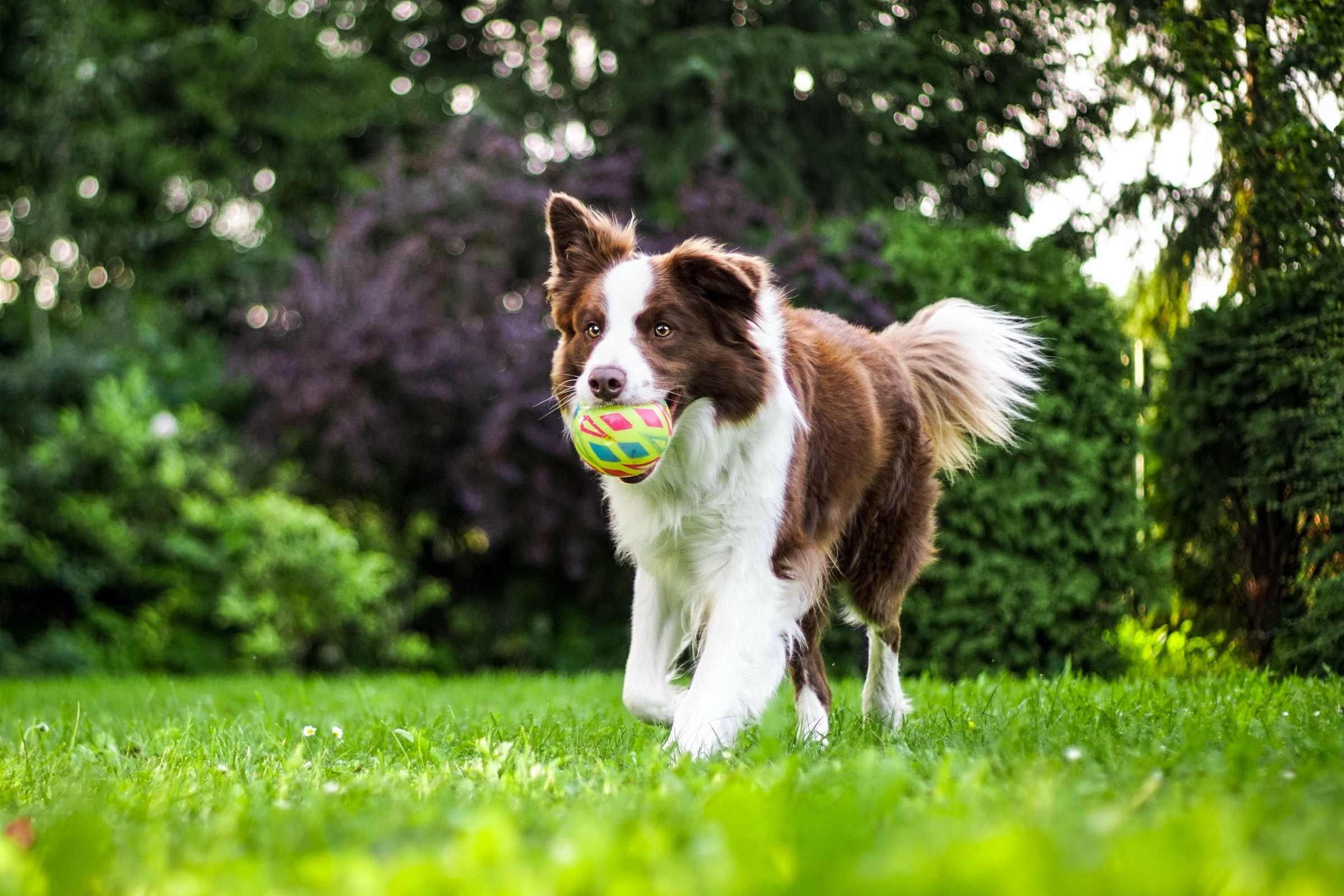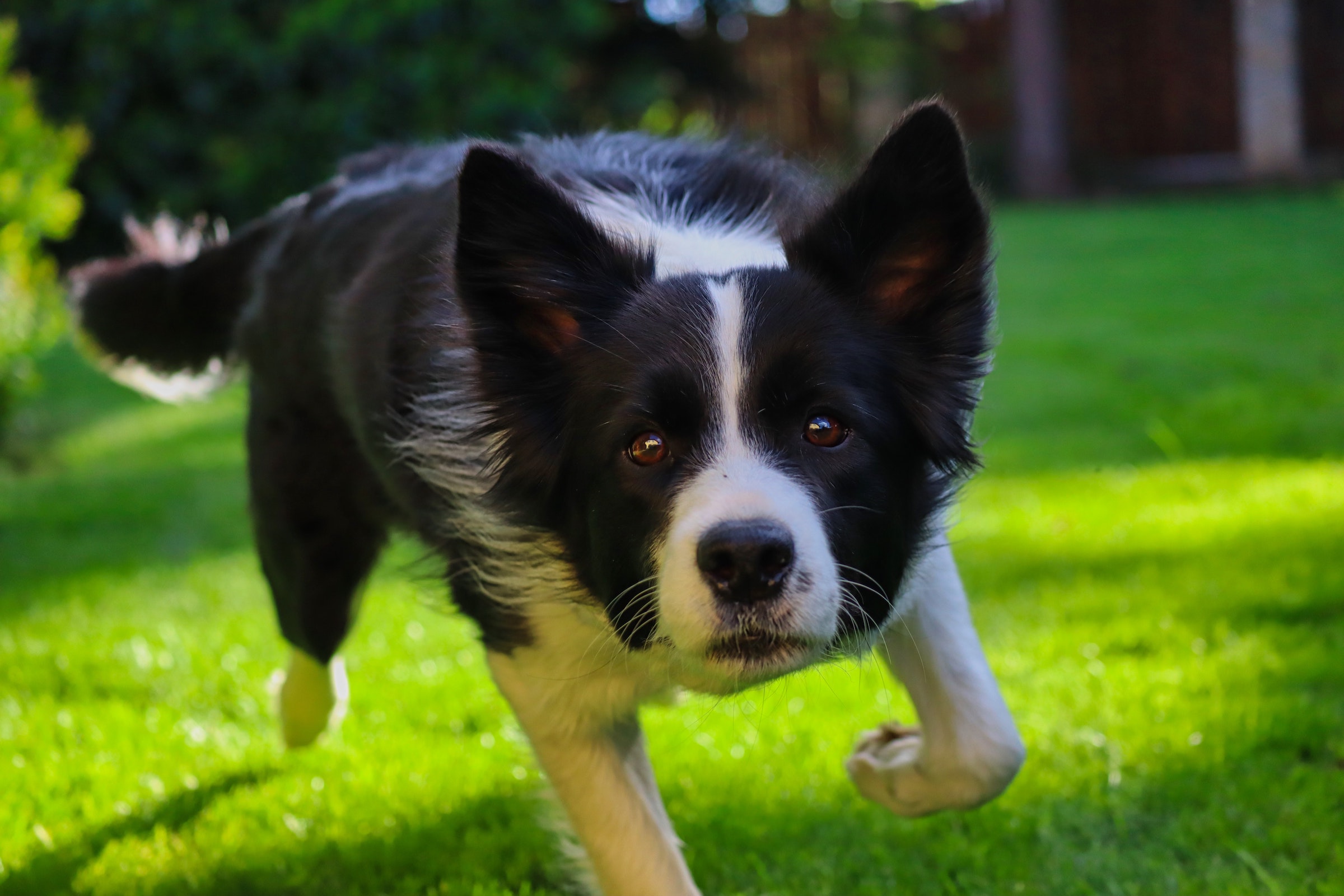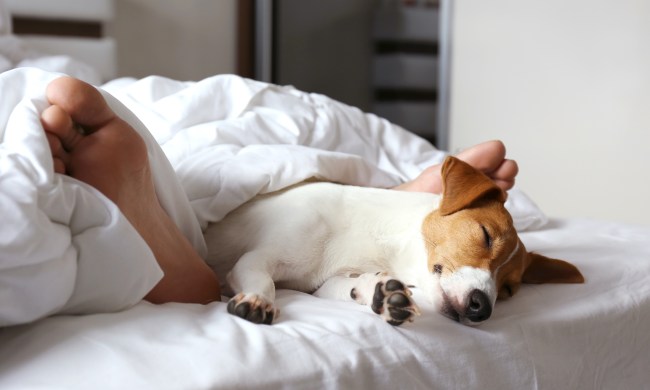If you’re thinking about giving your herding pup a space to call her own, it’s important to select her doghouse carefully. But what exactly makes an excellent border collie doghouse? This breed is medium-sized but athletic and active — that doesn’t really help narrow down the options. Luckily, border collies are also very friendly and trainable, so you should be able to introduce them to their new space successfully. (Once it’s ready, of course!)
It’s okay if you don’t know how to choose a doghouse — we’re here to help. We’ll review a few important characteristics to keep in mind, but the rest is really up to your dog. Take some time to discover what she likes and prefers, even if it takes some trial and error. It’ll be worth it, we promise! Here’s what you need to know about your pup’s new doghouse:

Why is a doghouse important for your border collie?
Not only is a doghouse a lot comfier than the grass or cement in the yard, but it’s also so much milder than whatever the weather’s dishing out. Inside a properly constructed doghouse, summers won’t be quite as sweltering and winters won’t turn your dog into a pupsicle. She’ll have a space to keep dry in the rain, too.
Doghouses also provide an instinctual sense of comfort for most dogs. You can replicate this indoors with a crate and covering, but that won’t be nearly as cozy for a dog who spends time outside. And comfort should be number one when shopping for a doghouse.
What size should a border collie doghouse be?
Some doghouses are sized according to the dog’s length, while others are simply recommended at different sizes for different breeds. Exact measurements will always be more accurate, though dogs do have slightly different preferences for space.
The rule of thumb is that your dog should have enough space to stand up comfortably and turn around. One may think that bigger is better when it comes to doghouses, but the opposite is actually true. Dogs curl up to maintain body heat, so a smaller space will warm up faster in the winter (via Regina Humane Society).
You should also consider providing your furry friend a raised doghouse. Placing your doghouse on cinder blocks or another stable platform will keep it from getting wet from any rain or draining groundwater, which your pup is sure to thank you for.

What material to choose for a border collie doghouse
Although plastic doghouses are the cheapest available, they don’t check off every box on the great-doghouse list. They are, however, weather-resistant and relatively easy to clean.
Wooden doghouses, on the other hand, are much more insulating than plastic. They’re generally thicker and sturdier than their synthetic counterparts, though wood without sealant isn’t as weatherproof as plastic.
How to customize a border collie doghouse
As important as it is to have shelter from the weather, having a place of comfort is essential for dogs, too. It’s a great idea to get them a cozy blanket or bed for the doghouse floor or grab the indoor one they like already. Some owners will use a blanket or clothing item of theirs to entice their dog into their new home with a familiar scent — whatever works for you!
Sprucing up the new doghouse with a favorite toy or two will go a long way in keeping your dog happy. Perhaps invest in a treat-releasing toy so your dog has something to do while she’s getting used to her new space. Better yet, hang out with her near her new doghouse so she’ll associate it with happy memories — and you!
Investing in a doghouse for your border collie will help her stay comfortable and confident in her outdoor space. She’ll be warm in the winter and cool in the summer — what else could you ask for? Taking the time to get to know your dog’s preferences also will do a lot to create a cozy home for her. Your TLC will do the rest!



